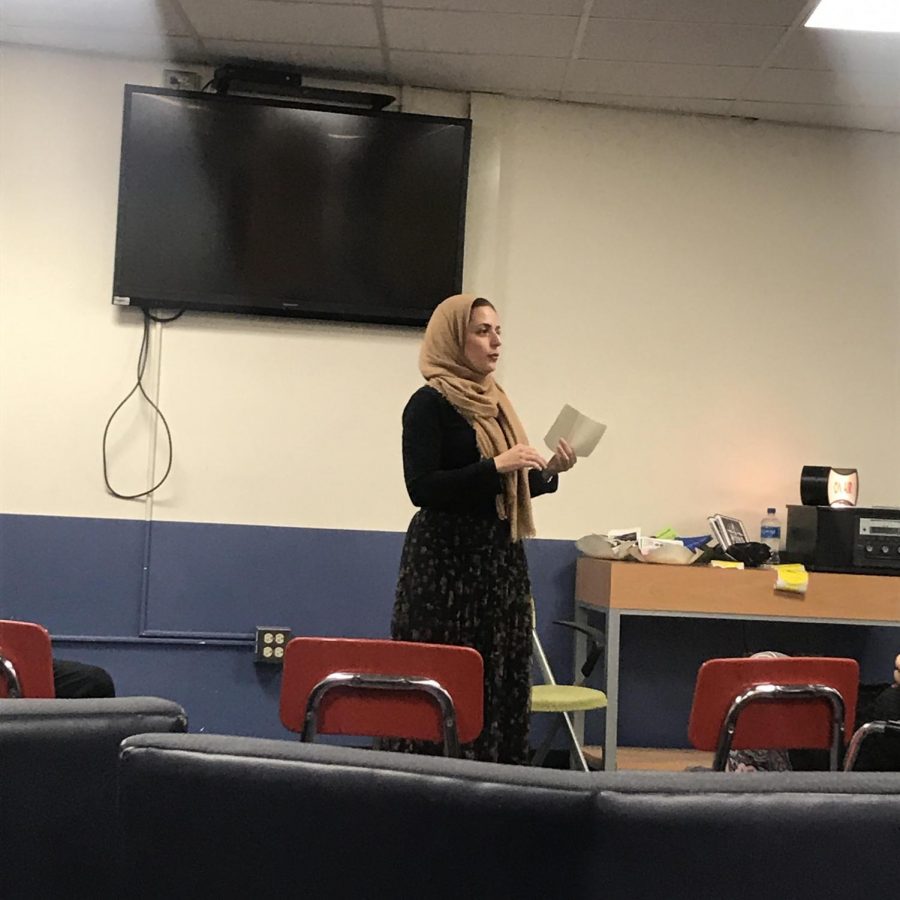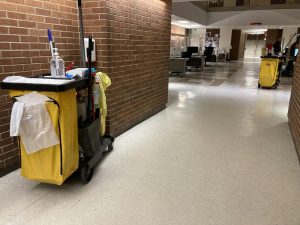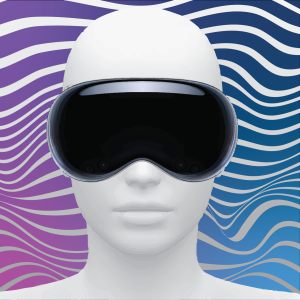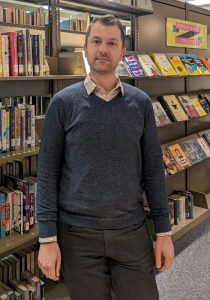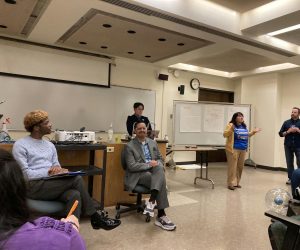Finding a niche, fighting racism in media
Sobh described her career, issues of discrimination and finding her place in the media world.
January 30, 2018
Each semester, NEIU hosts Meet the Media Night, an event that gives students a chance to learn about opportunities on campus. The Spring 2018 Meet the Media night was held on Jan. 18 in the student lounge, those in attendance included students taking intro journalism classes and members of NEIU’s Muslim Student Association.
The event is a collaboration between NEIU’s four media organizations: Seeds Literary Journal, Que Ondee Sola Magazine, WZRD Chicago 88.3 FM and the NEIU Independent, and the biannual event features a guest speaker. This year was journalist, comedian and internet personality, Mariam Sobh.
Sobh has worked at various media establishments including WBBM radio, WBEZ, and has interviewed both President Bush and then-Senator Obama, among others. Her current focus is posting pop-culture videos on her Facebook page, which is verified and has over 757 thousand likes.
Sobh described her college experience at the University of Illinois and working at the organizations on campus like writing for the newspaper and yearbook, doing broadcast journalism at the radio station, and anchoring the news at the school TV station.
She described her struggles finding her niche in content production and the racism she experienced as a Muslim woman in the field, and her dreams to be one of the first Muslim women on TV.
Sobh said, “I never saw anyone that looked like me on TV but I was going to be the one to break that barrier. I remember I had a classmate that asked me, ‘What are you going to do if they don’t hire you because you cover your hair and are a Muslim woman?’ I was like ‘Oh, I’ll sue them!’ Well, easier said than done.”
Sobh also described the racism she experienced with her first TV station interview.
She said, “It was in Naganni, Michigan… It paid 16 or 17 thousand dollars a year, and you had to sign a two-year contract. If you left before then you had to pay a few thousand dollars to get out of it. I was like ‘I don’t care, I’ll do it.’ I get back home a couple days [after the interview] and I get a call and it’s the news director. He says, ‘You know, you’re too good for this place…You should be on the radio, public radio. Better yet, you should be on Minnesota Public Radio. I was like ‘Is it because there’s a lot of Muslims that live out there? Interesting.’
Years later I did call this guy back because I wanted closure on this story. He told me ‘It was because you’re a Muslim woman and unfortunately the climate that we live in, I know it’s so un-American, but I couldn’t put you up there.’”
This led to Sobh’s realization that while working to find a spot on TV she could continue to create her own content through her Facebook videos and encouraged students to do the same.
She concluded by saying, “I’m so happy where I’m at right now and I’m not going to wait for the gatekeepers up here to allow someone like me to be on television. One thing I always urge young people in college is that you can make videos, you can make podcasts, you don’t need fancy equipment. You don’t have to have anyone tell you when or how.”


